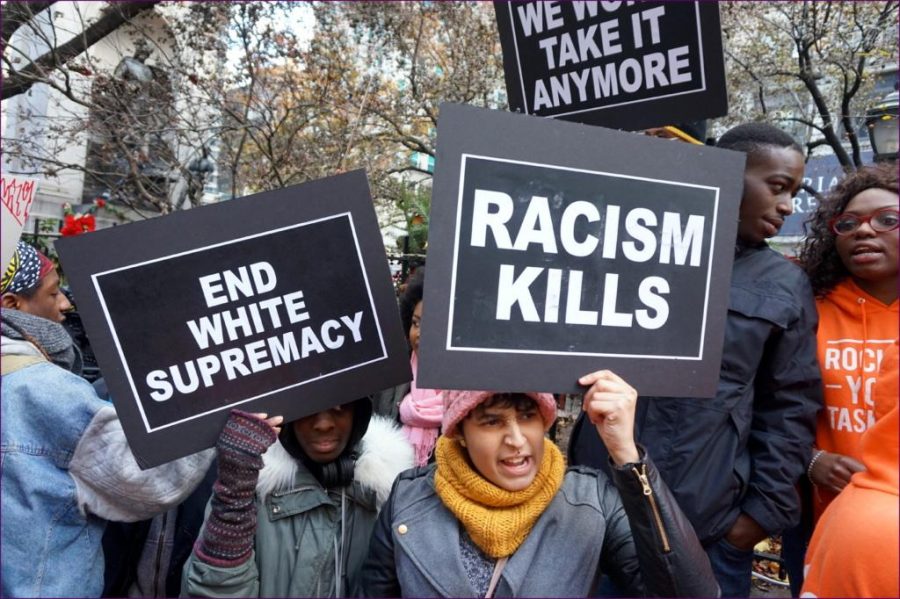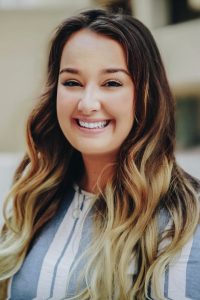Community Town Hall Discusses the disproportionate effects of COVID-19 on the Black Community
May 30, 2020
On May 28, the Utah Division of Multicultural Affairs held a virtual Black Community Town Hall via Zoom and Facebook Live to facilitate a discussion about COVID-19 and its impact on the black community. A variety of panelists provided insights and advice on various topics such as educational disparities, emotional wellness and community mobilization.
The online conversation was facilitated by Bridget Shears, a commissioner for the Utah Martin Luther King Jr. Human Rights Commission.
The first panelist, Michelle Love-Day, addressed education inequities and how the pandemic has highlighted these inequities. For example, free meals and free Wi-Fi were made available to students by school districts, but the websites with the information about the meals and Wi-Fi were in English and Spanish only, making it inaccessible to anyone unable to understand either language.
Love-Day also explained several myths about education inequities. Some of these myths are that educational resources are distributed across schools equally, low-income children and children of color are receiving enough educational resources to succeed academically, and educational inequity will not have widespread impact.
“We need to address the systematic racism in education before we return back to our schools,” Love-Day said.
Additionally, Love-Day provided suggestions for parents with students, like making Zoom appointments with teachers as needed, or finding the Black Student Union at your school or connecting with the neighboring high school to assist in starting an organization. She also challenged the community to vote in the upcoming elections due to Utah education budget cuts and to push for an anti-bias and anti-racism curriculum.
Love-Day is currently the associate director for the Department of Educational Equity in the Granite School District and serves on several boards in the community, including the University of Utah College of Education Advancement Board.
The next panelist, Dr. Kameelah Rashad, founder and president of the Muslim Wellness Foundation and founding co-director of the National Black Muslim COVID Coalition, presented on sustaining wellness in black communities during the pandemic.
She began by addressing how difficult the past few days have been, not only because of the pandemic, but also because of the ongoing racial violence in the country.
“The impact of COVID on black communities has been tremendous,” Rashad said.
Rashad discussed why black communities are vulnerable, citing reasons such as white supremacy and systemic oppression, which are pervasive and highlighted during the pandemic. These phenomena lead to food insecurity, health disparities, incarcerated citizens, unemployment and inadequate access.
In addition to issues exacerbated by the pandemic, Rashad also explained the emotional impact of oppression, racism and violence, such as race-based traumatic stress, microaggressions with those with majority identities and racial battle fatigue.
“It’s so important to name where the heaviness is coming from, why we might be feeling the increase in anxiety, of sadness, of being overwhelmed, of being traumatized by the images and the messages that we’re receiving,” Rashad said.
Rashad encouraged participants to identify their emotions as they experience them in the current moment, honor them without judgment or evaluation and name them as part of the healing needed to get through the pandemic. She also said it was important to stay connected to people who will validate your feelings, listen to you and offer support. These are the people who know when you’re not well and people you can heal with.
“With each phase of the pandemic, there is a very particular mental health impact, and this cannot be understated,” Rasheed said.
The final panelist was Betty Sawyer, Weber State University community engagement coordinator in access and diversity, co-founder of Project Success Coalition and president of the Ogden NAACP. She spoke about the need for community mobilization and having a collective voice in times of crisis and uncertainty.
Sawyer said some of the requirements for coming together as a community are being okay with discomfort, listening for understanding, creating safe space for dialogue, realizing that there is no quick fix and “staying at the table” or being willing to doing the work and bringing others in.
Sawyer outlined her C-5 Strategies around community building and bringing about needed changes.
Communication involves sounding the alarm, speaking about inequities and communicating early and clearly. It also includes being comfortable with engaging in uncomfortable conversations about racism.
Collaboration, or the concept of the village, means community members support each other, reject misguided narratives and work towards a common agenda. She emphasized the need for a collective agenda in order to be effective in bringing about change.
“As a people, we have a history of doing a lot with a little, making things stretch and improvising. These are the same tools that we have to put in place today to be able to move that needle for structural change,” Sawyer said.
The Utah Black Roundtable was created in an effort to bring different organizations together to work towards changing the current status in various inequities experienced by the black communities. They established the Utah Black Agenda as a starting point for moving forward, rather than starting from scratch.
Connection involves calling on specific organizations and programs that have been given support from the black community in the past, and working with them in order to move the agenda forward. This can aid with issues like training, access, financing and other resources.
Consistency is looking to the history of advocating for change from ancestors and predecessors, and moving forward from where they left off.
“We have a roadmap for consistency, persistence, resiliency and change that has been born out of 400 years of struggle, achievement and commitment,” Sawyer said.
To conclude the town hall, Director of Utah Multicultural Division Nubia Peña provided a few COVID-19 specific resources available to the community, such as free COVID-19 testing, masks available to all Utahns free of charge and resources for high-risk individuals to minimize their exposure.
A full video recording of the town hall is available on the Utah Division of Multicultural Affairs Facebook page.








